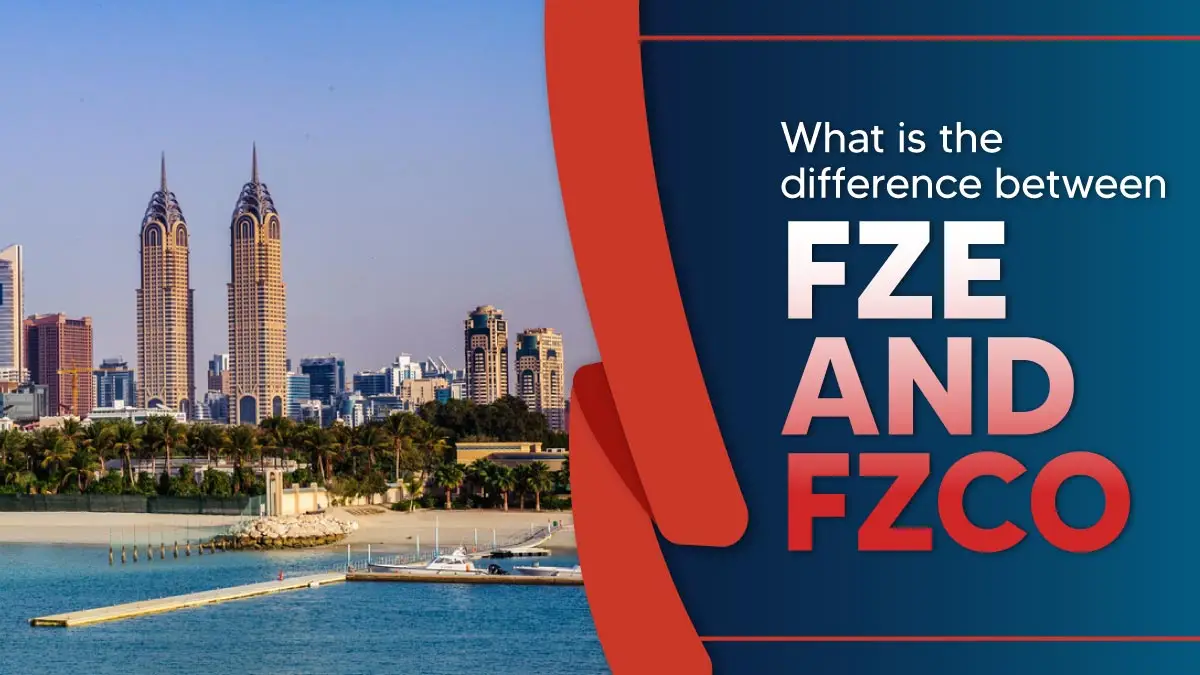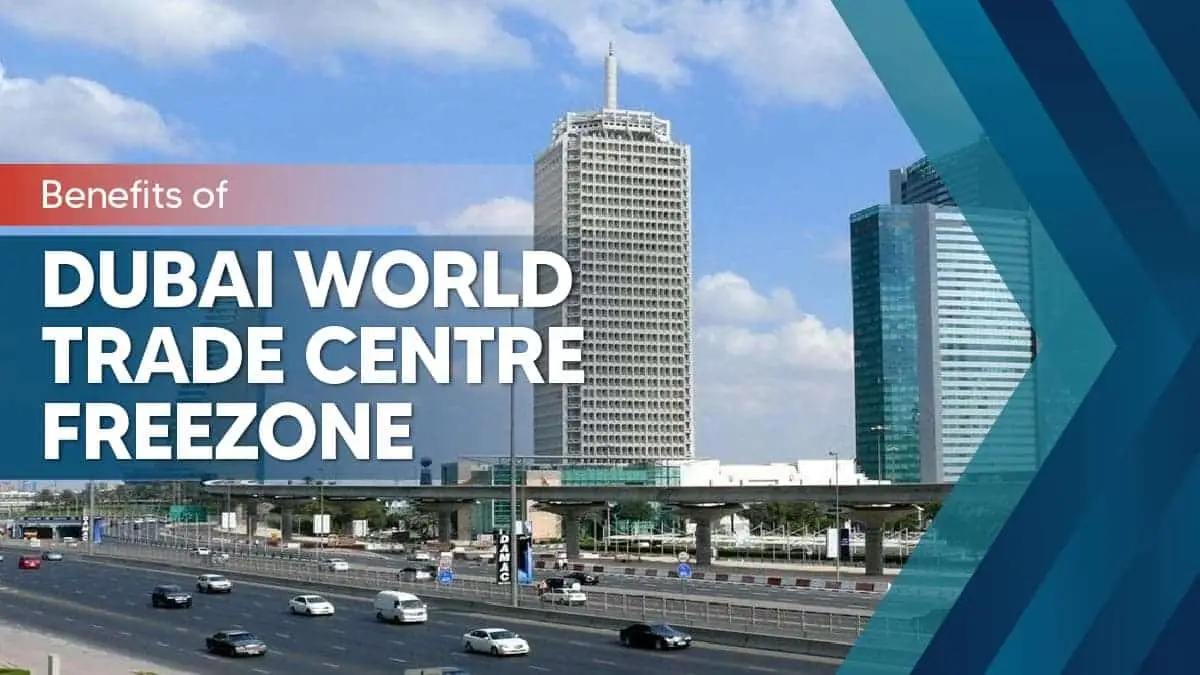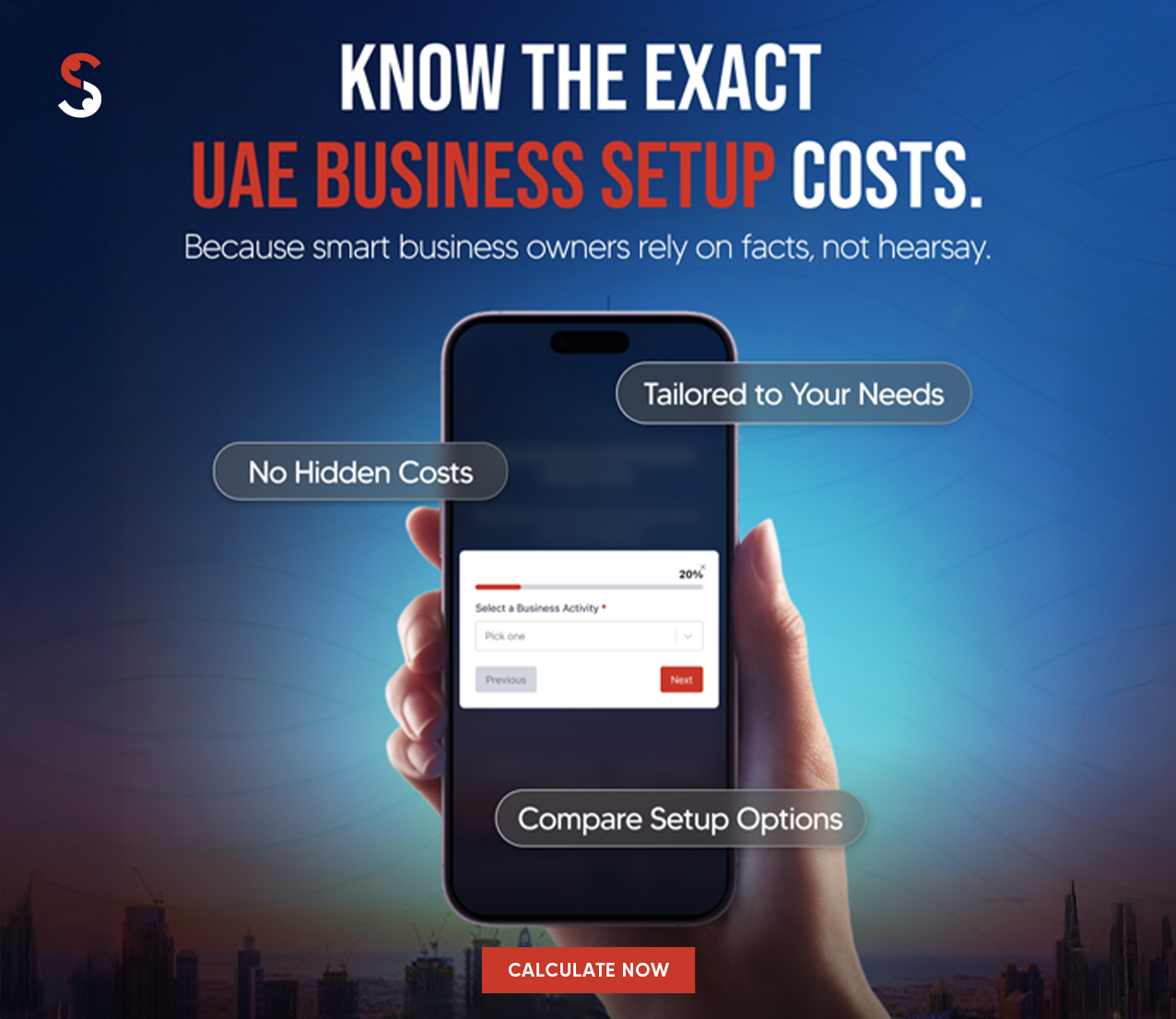Choosing between an FZE and an FZCO is a key decision for entrepreneurs establishing a business in a UAE free zone. This choice directly affects your company’s ownership structure, scalability, and daily operations.
Put simply, the core difference between an FZE and an FZCO lies in the number of owners: an FZE is a single-shareholder company, while an FZCO is designed for two or more shareholders.
This guide explains the differences between FZE and FZCO, outlines their benefits, and offers a clear comparison to help you select the most suitable legal structure for your business.
What is an FZE (Free Zone Establishment)?
An FZE, or Free Zone Establishment, is a limited liability company in a UAE free zone with a single shareholder, either an individual or a corporate entity.
An FZE is designed for individual entrepreneurs, offering a straightforward structure that allows sole owners to retain full control and ownership of their UAE business.
Key Characteristics of an FZE:
- Sole Ownership and Control: You retain full authority over all decisions and profits.
- Limited Liability: Your personal assets are protected, and liability is limited to the company’s capital.
- Separate Legal Entity: The FZE has its own legal identity, distinct from its owner.
- 100% Foreign Ownership: A local sponsor is not required.
- Tax Advantages: Most free zones offer 0% personal and corporate income tax.
- Full Profit Repatriation: You can transfer all earnings to your home country without restrictions.
- Visa Eligibility: You are eligible to obtain UAE residency visas for yourself, your family, and employees.
Who is an FZE Ideal For?
- Freelancers and solopreneurs.
- Individual investors and small business owners.
- Consultants and service providers.
- E-commerce store owners.
What is an FZCO (Free Zone Company)?
An FZCO (Free Zone Company), also known as an FZC, is a limited liability company in a UAE free zone. It requires at least two and up to fifty shareholders, who may be individuals or corporate entities.
An FZCO provides a suitable structure for partnerships, joint ventures, and businesses seeking multiple investors.
Key Characteristics of an FZCO:
- Multiple Shareholders: Suitable for partnerships, family businesses, and startups with investors.
- 100% Foreign Ownership: Shareholders may be foreign nationals or international companies.
- Limited Liability: Shareholders are liable only to the extent of their capital contributions.
- Governance: Operations are governed by a formal shareholder agreement.
- Tax Benefits: Exempt from income tax and customs duties within the free zone.
- Scalability: Capital can be raised by adding new shareholders.
- Visa Support: Eligible to sponsor residency visas for shareholders and employees.
Who is an FZCO Ideal For?
- Business partnerships and co-founders.
- Startups seeking investment.
- Family-owned businesses.
- International companies expanding to the UAE.
- Joint ventures.
FZE vs FZCO: A Direct Comparison Table
This table summarizes the key differences between FZE and FZCO.
| Feature | FZE (Free Zone Establishment) | FZCO (Free Zone Company) |
|---|---|---|
| Number of Shareholders | One (Individual or Corporate) | 2 to 50 (Any combination) |
| Ownership Structure | Simple, single-owner | Multi-owner, governed by a shareholder agreement |
| Best For | Solo entrepreneurs, individual control | Partnerships, co-founders, investor-backed businesses |
| Governance & Control | Direct and fast decision-making by the owner | Requires consensus or board decisions; more formal structure |
| Scalability | Limited to the owner’s capacity; harder to inject capital | Easier to raise capital by adding shareholders |
| Setup Complexity | Generally more straightforward | Slightly more complex due to multiple shareholders |
Key Operational Considerations for FZE & FZCO
Understanding these operational rules is essential for long-term success beyond the initial setup.
1. Capital Requirements & Share Structure
Free Zone companies must follow the capital requirements set by their respective authorities. These requirements can vary significantly:
- No Minimum Capital: Many leading Free Zones, such as DMCC and DAFZA, allow businesses to set their own capital based on operational needs.
- Fixed Capital Requirements: Some zones, such as Jebel Ali Free Zone (JAFZA), require a minimum share capital of AED 50,000-300,000.
- In-Kind Contributions: The applicant or company may contribute assets such as equipment or intellectual property, provided an independent valuer assesses them and the Free Zone Authority grants approval.
2. Ownership & Share Transfers
Share transfers in an FZE or FZCO require formal approval and registration with the Free Zone Authority.
- FZE Share Transfer: Transferring shares results in a complete change of ownership or may require conversion to an FZCO to allow multiple owners.
- FZCO Share Transfer: Shareholders may sell their stakes, either partially or entirely, subject to approval and the shareholder agreement.
- Process: Required documents typically include a Board Resolution, Share Purchase Agreement, and an updated Memorandum of Association.
3. Corporate Directors & Governance
- Corporate Directors: Some Free Zones permit the appointment of a corporate director (i.e., another company) instead of an individual, a feature that provides flexibility for international holding structures, subject to special approval.
- Management: The sole owner or an appointed manager manages an FZE. The shareholders of an FZCO usually appoint a board of directors or managers to manage the company.
4. Financial Year & Reporting
The ability of Free Zone companies to select their own financial year-end, subject to the Free Zone Authority’s approval, enables them to align with a parent company’s reporting cycle or to optimise their accounting strategies.
5. Conversion Between FZE and FZCO
A business owner can convert an FZE into an FZCO, and vice versa, as the business evolves. This process requires compliance with the Free Zone Authority’s specific rules and regulations.
6. Important Restrictions
- Public Listing: Free Zone entities cannot list on a stock exchange. If public listing is a goal, the company must restructure as a mainland entity.
- Mainland Trade: Direct trade with the mainland of the UAE is generally restricted. Free Zone companies may apply for a permit from the Department of Economy and Tourism, establish a mainland branch, or work with a local distributor to access the UAE market.
Benefits of Setting Up in a Dubai Free Zone
Establishing a business in a Free Zone, either FZE or FZCO, offers significant advantages:
- 100% Foreign Ownership: Maintain complete control without requiring a local partner.
- 0% Corporate and Personal Income Tax: Available to qualifying businesses in Free Zones.
- Full Capital and Profit Repatriation: Transfer earnings and investments abroad without restrictions.
- Business Privacy: Company ownership details are not made public.
- Streamlined Setup and Remote Registration: Many Free Zones offer efficient, fully remote company formation.
- Customs Duty Benefits: Receive exemptions on imports and exports within the Free Zone.
- Visa Sponsorship: Secure residency visas for yourself, your family, and your employees.
Other Business Structures in Dubai
While FZE and FZCO suit Free Zones, Dubai provides additional business structures to meet various requirements:
- Mainland LLC: Permits business throughout the UAE. Most sectors now allow 100% foreign ownership, although some professional licenses still require a Local Service Agent without ownership rights.
- Sole Proprietorship: Designed for individual professionals, this structure allows 100% foreign ownership with a Local Service Agent.
- Branch/Representative Office: Enables foreign companies to establish a presence in Dubai. Representative Offices are not permitted to generate revenue.
- Offshore Company: Suitable for international trade, asset holding, and wealth management. These companies cannot operate within the UAE mainland.
FZE or FZCO: How to Make the Right Choice
Your choice depends on your ownership goals and growth plans.
- Choose an FZE if you are a sole founder seeking complete control, a straightforward setup, and an easy-to-manage structure. This option suits businesses that do not plan to add partners or investors.
- Choose an FZCO if you are starting with partners, intend to attract investors, or require a structure that allows for scalable ownership distribution. We recommend an FZCO if you may sell company shares in the future.
If you are unsure, Shuraa Business Setup experts can assess your needs and recommend the most suitable free zone and company structure. Contact us for a complimentary consultation.
Ready to See the Exact Costs?
Now that you know the difference between FZE and FZCO, request instant, personalized pricing for your business setup.
Frequently Asked Questions (FAQs)
1. What is the main difference between an FZE and an FZCO?
The main difference between an FZE and an FZCO is the number of shareholders. An FZE has one shareholder, while an FZCO can have between 2 and 50 shareholders.
2. What does FZC stand for?
FZC stands for “Free Zone Company” and is synonymous with FZCO. Both refer to a multi-shareholder limited liability company in a UAE free zone.
3. Can an FZE or FZCO have 100% foreign ownership?
Yes, both FZE and FZCO entities permit 100% foreign ownership. No local UAE partner is required when establishing a company in a free zone.
4. What is the difference between FZ LLC and FZCO?
The term “FZ LLC” is uncommon. The standard terms are FZE for a single owner and FZCO for multiple owners. Both are limited liability companies in a free zone. The main distinction is between a Free Zone Company (FZCO) and a Mainland LLC, which concerns their jurisdiction of operation.
5. What is the difference between an FZCO and a Mainland LLC?
An FZCO is registered in a free zone, offers 100% foreign ownership, but is primarily licensed to operate within the free zone and internationally. To trade directly with the UAE mainland, a special permit or a branch is required. A Mainland LLC is licensed to operate freely across the entire UAE market. Due to recent reforms, 100% foreign ownership is now allowed for Mainland LLCs in most economic sectors, removing the previous requirement for a local majority partner.
6. Can I convert my FZE to an FZCO later if I get a business partner?
Yes, you can convert an FZE to an FZCO to add multiple shareholders. This process requires compliance with specific regulations and approval from your Free Zone Authority.
7. Can my Free Zone company (FZE/FZCO) do business on the UAE mainland?
Yes, through specific pathways. Your FZE or FZCO can apply for a permit from the Department of Economy and Tourism (DET) to conduct specific mainland activities, open a mainland branch office, or, in some cases, obtain a dual license.
8. Is an FZE or FZCO better for a startup with two co-founders?
A startup with two co-founders must choose an FZCO. An FZE allows only one shareholder, making an FZCO necessary to define ownership and governance between both partners.
Disclaimer: This information is for general guidance only and may change with updates to UAE government policies and Free Zone regulations. Please consult a professional business setup advisor, such as Shuraa, for the latest requirements.










